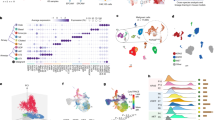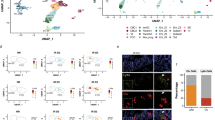Abstract
Promoter methylation of the RAS-association domain family 1, isoform A gene (RASSF1A) is one of the most frequent events found in human tumours. In this study we set out to test the hypothesis that loss of Rassf1a can cooperate with inactivation of the adenomatous polyposis coli (Apc) gene to accelerate intestinal tumourigenesis using the Apc-Min (ApcMin/+) mouse model, as mutational or deletional inactivation of APC is a frequent early event in the genesis of intestinal cancer. Further, loss of RASSF1A has also been reported to occur in premalignant adenomas of the bowel. RASSF1A has been implicated in an array of pivotal cellular processes, including regulation of the cell cycle, apoptosis, microtubule stability and most recently in the β-catenin signalling pathway. By interbreeding isoform specific Rassf1a knockout mice with Apc+/Min mice, we showed that loss of Rassf1a results in a significant increase in adenomas of the small intestine and accelerated intestinal tumourigenesis leading to the earlier death of adenocarcinoma-bearing mice and decreased overall survival. Comparative genomic hybridization of adenomas from Rassf1a−/−; Apc+/Min mice revealed no evidence of aneuploidy or gross chromosomal instability (no difference to adenomas from Rassf1a+/+; Apc+/Min mice). Immunohistochemical analysis of adenomas revealed increased nuclear β-catenin accumulation in adenomas from Rassf1a−/−; Apc+/Min mice, compared to those from Rassf1a+/+; Apc+/Min mice, but no differences in proliferation marker (Ki67) staining patterns. Collectively these data demonstrate cooperation between inactivation of Rassf1a and Apc resulting in accelerated intestinal tumourigenesis, with adenomas showing increased nuclear accumulation of β-catenin, supporting a mechanistic link via loss of the known interaction of Rassf1 with β-TrCP that usually mediates degradation of β-catenin.
This is a preview of subscription content, access via your institution
Access options
Subscribe to this journal
Receive 50 print issues and online access
$259.00 per year
only $5.18 per issue
Buy this article
- Purchase on Springer Link
- Instant access to full article PDF
Prices may be subject to local taxes which are calculated during checkout



Similar content being viewed by others
References
Adams DJ, Dermitzakis ET, Cox T, Smith J, Davies R, Banerjee R et al. (2005). Complex haplotypes, copy number polymorphisms and coding variation in two recently divergent mouse strains. Nat Genet 37: 532–536.
Alberici P, de Pater E, Cardoso J, Bevelander M, Molenaar L, Jonkers J et al. (2007). Aneuploidy arises at early stages of Apc-driven intestinal tumorigenesis and pinpoints conserved chromosomal loci of allelic imbalance between mouse and human. Am J Pathol 170: 377–387.
Carothers AM, Melstrom Jr KA, Mueller JD, Weyant MJ, Bertagnolli MM . (2001). Progressive changes in adherens junction structure during intestinal adenoma formation in Apc mutant mice. J Biol Chem 276: 39094–39102.
Chung YJ, Jonkers J, Kitson H, Fiegler H, Humphray S, Scott C et al. (2004). A whole-genome mouse BAC microarray with 1-Mb resolution for analysis of DNA copy number changes by array comparative genomic hybridization. Genome Res 14: 188–196.
Cunningham F, Rios D, Griffiths M, Smith J, Ning Z, Cox T et al. (2006). TranscriptSNPView: a genome-wide catalog of mouse coding variation. Nat Genet 38: 853.
Estrabaud E, Lassot I, Blot G, Le Rouzic E, Tanchou V, Quemeneur E et al. (2007). RASSF1C, an isoform of the tumor suppressor RASSF1A, promotes the accumulation of beta-catenin by interacting with βTrCP. Cancer Res 67: 1054–1061.
Gerdes J, Lemke H, Baisch H, Wacker HH, Schwab U, Stein H . (1984). Cell cycle analysis of a cell proliferation-associated human nuclear antigen defined by the monoclonal antibody Ki-67. J Immunol 133: 1710–1715.
Graubert TA, Cahan P, Edwin D, Selzer RR, Richmond TA, Eis PS et al. (2007). A high-resolution map of segmental DNA copy number variation in the mouse genome. PLoS Genet 3: e3.
Guo C, Tommasi S, Liu L, Yee JK, Dammann R, Pfeifer GP . (2007). RASSF1A is part of a complex similar to the Drosophila Hippo/Salvador/Lats tumor-suppressor network. Curr Biol 17: 700–705.
Hupé P, Stransky N, Thiery JP, Radvanyi F, Barillot E . (2004). Analysis of array CGH data: from signal ratio to gain and loss of DNA regions. Bioinformatics 20: 3413–3422.
Lee S, Hwang KS, Lee HJ, Kim JS, Kang GH . (2004). Aberrant CpG island hypermethylation of multiple genes in colorectal neoplasia. Lab Invest 84: 884–893.
Luongo C, Moser AR, Gledhill S, Dove WF . (1994). Loss of Apc+ in intestinal adenomas from Min mice. Cancer Res 54: 5947–5952.
Moser AR, Pitot HC, Dove WF . (1990). A dominant mutation that predisposes to multiple intestinal neoplasia in the mouse. Science 247: 322–324.
Nishisho I, Nakamura Y, Miyoshi Y, Miki Y, Ando H, Horii A et al. (1991). Mutations of chromosome 5q21 genes in FAP and colorectal cancer patients. Science 253: 665–669.
Oliveira C, Velho S, Domingo E, Preto A, Hofstra RM, Hamelin R et al. (2005). Concomitant RASSF1A hypermethylation and KRAS/BRAF mutations occur preferentially in MSI sporadic colorectal cancer. Oncogene 24: 7630–7634.
Reya T, Clevers H . (2005). Wnt signalling in stem cells and cancer. Nature 434: 843–850.
Smyth GK . (2005). Limma: linear models for microarray data. In: Gentleman R, Carey V, Dudoit S, Irizarry R, Huber W (eds). Bioinformatics and Computational Biology Solutions using R and Bioconductor. Springer: New York. pp 397–420.
Song MS, Song SJ, Ayad NG, Chang JS, Lee JH, Hong HK et al. (2004). The tumour suppressor RASSF1A regulates mitosis by inhibiting the APC-Cdc20 complex. Nat Cell Biol 6: 129–137.
Su LK, Kinzler KW, Vogelstein B, Preisinger AC, Moser AR, Luongo C et al. (1992). Multiple intestinal neoplasia caused by a mutation in the murine homolog of the APC. Science 256: 668–670.
Taketo MM . (2004). Shutting down Wnt signal-activated cancer. Nat Genet 36: 320–322.
Tommasi S, Dammann R, Zhang Z, Wang Y, Liu L, Tsark WM et al. (2005). Tumor susceptibility of Rassf1a knockout mice. Cancer Res 65: 92–98.
van Amerongen R, Berns A . (2006). Knockout mouse models to study Wnt signal transduction. Trends Genet 22: 678–689.
van der Weyden L, Adams DJ . (2007). The Ras-association domain family (RASSF) members and their role in human tumourigenesis. Biochim Biophys Acta 1776: 58–85.
van der Weyden L, Tachibana KK, Gonzalez MA, Adams DJ, Ng BL, Petty R et al. (2005). The RASSF1A isoform of RASSF1 promotes microtubule stability and suppresses tumorigenesis. Mol Cell Biol 25: 8356–8367.
van Engeland M, Roemen G, Brink M, Pachen MM, Weijenberg MP, de Bruine AP et al. (2002). K-ras mutations and RASSF1A promoter methylation in colorectal cancer. Oncogene 21: 3792–3795.
Acknowledgements
Work in the DJ Adams Laboratory is funded by Cancer Research UK (CR-UK) and the Wellcome Trust, work in the A Bradley Laboratory is funded by the Wellcome Trust and work in the MJ Arends Laboratory is supported by CR-UK. We thank John Brown for performing the immunohistochemistry and Beverley Haynes for processing of the tissues. Open access to this article is funded by the Wellcome Trust.
Author information
Authors and Affiliations
Corresponding author
Additional information
Supplementary Information accompanies the paper on the Oncogene website (http://www.nature.com/onc)
Supplementary information
Rights and permissions
About this article
Cite this article
van der Weyden, L., Arends, M., Dovey, O. et al. Loss of Rassf1a cooperates with ApcMin to accelerate intestinal tumourigenesis. Oncogene 27, 4503–4508 (2008). https://doi.org/10.1038/onc.2008.94
Received:
Revised:
Accepted:
Published:
Issue Date:
DOI: https://doi.org/10.1038/onc.2008.94
Keywords
This article is cited by
-
Myeloid translocation genes differentially regulate colorectal cancer programs
Oncogene (2016)
-
Functional importance of RASSF1A microtubule localization and polymorphisms
Oncogene (2010)
-
Methylation associated inactivation of RASSF1A and its synergistic effect with activated K-Ras in nasopharyngeal carcinoma
Journal of Experimental & Clinical Cancer Research (2009)
-
The protein tyrosine phosphatase receptor type R gene is an early and frequent target of silencing in human colorectal tumorigenesis
Molecular Cancer (2009)



